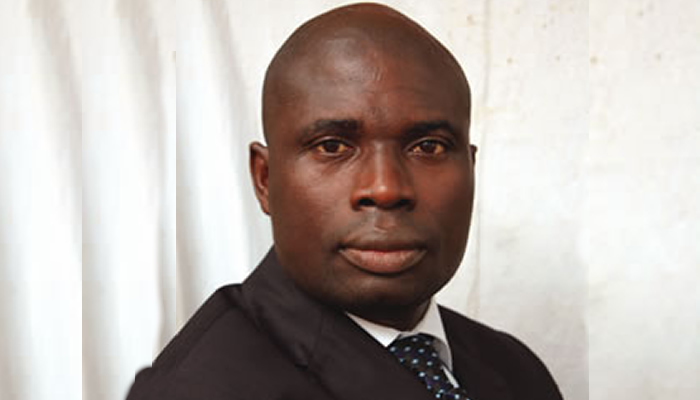
It is not an easy task to be the leader of an aggrieved people. You can’t even get elected as leader unless you identify with their plights and speak their language. This applies anywhere there are grievances, not just among the tribes that constitute the Southern Kaduna People’s Union in Kaduna State. Their leader was on AIT the other day. I suppose his goal was to brief the public about what his people were passing through. But as I always explain, there are ways to present one’s case and there are ways one shouldn’t in order to get the best out of the system.
That time, the SOKAPU leader said some things in the manner I wouldn’t advise any tribe to say them. He and his people wanted the international community to intervene in resolving the attacks happening in their part of Kaduna State. He said the international community needs to intervene because he and his people don’t believe in the government of Nigeria. He said it’s not just the current government that they don’t believe in. It’s the entire system, so any government that comes to power isn’t acceptable in the matter because he and his people believe both the system and any government can’t handle the issues; it’s the international community that can.
This isn’t the first time I comment on occurrences in the southern parts of Kaduna State. Each time I intervene it’s not because I support anyone, rather it’s to offer another perspective that should help ensure peace in that area. Other perspectives are needed in the case of attacks attributed to one tribe or the other in that area. But whoever offers a perspective different from what aggrieved people say is regarded as an enemy. Every call made that people should engage rather than issue threats is dismissed. Yet we know that in the Niger Delta, for instance, after militants issued countless threats they eventually sat to engage with the government. No one successfully ignores the government or says the government doesn’t matter.
In affected parts of the North everyone makes utterances based on the grief they have suffered. This isn’t unexpected, but as I like to say, sounding militant in a situation when we should find a solution to a complex matter can’t help anyone. When leaders issue militant utterances, the helpless will, unfortunately, continue to suffer consequences of lack of tact, of the disposition to say government doesn’t matter. The manner the SOKAPU president presented his people’s case didn’t indicate he had this consciousness. With his utterance, he alienates government and those in government whose sympathy he should be attracting. Since he dismisses government, does he think any individual in government will want to identify with him in his struggle?
Perhaps it’s important to point out the role and power of government in a nation; I refer to the same government the SOKAPU leader dismisses in his comment. It’s sovereign, and no international community can step in here unless it approves. No non-state actor will dictate to it how it should resolve its internal affairs. It has the monopoly of instruments of coercion. Even the judiciary is helpless if a government chooses to take a decision above it. How the Russian judiciary sentenced a female basketball player recently, but the government released her to the US in an exchange of prisoners scheme is an example. That is the government SOKAPU leader dismisses.
Now, the government isn’t made up of one tribe. No person in government likes it when a non-state actor challenges it as the SOKAPU leader did. No government among members of the international community will tolerate a non-state actor that talks about its relevance like that. It’s even then a government comes out to enforce its will. In the past, such views as expressed by the SOKAPU leader were what I pointed out as uncalled for in the utterances of any people who felt aggrieved. How to suavely present your case in a crisis is what you learn, not how to quarrel; that’s one saying among my people.
Each time people in Nigeria who’re aggrieved speak, they have a tendency to overstate their case by making disparaging comments about the government. But this can’t help their case; it can’t help the SOKAPU leader’s case. Whoever in government heard the SOKAPU leader would simply say since he didn’t believe in the government or the system, let him and his people “handle their wahala.” The other time one person from that part of Kaduna State said since an incident occurred, no person from the same part who was in government uttered a word. They wouldn’t with the manner the SOKAPU leader dismissed the government. No member of the tribe would openly associate with a union that makes government they work for its enemy.
I’m not sure those that people from that part of Kaduna State regard as their friends tell them this reality
Sometimes antagonism isn’t what is needed in what has become an intractable crisis. It’s an engagement. Whoever wants peace can’t be tired of engagement. Engagement can last from one government into future governments. Even in that future the SOKAPU leader dismissed by saying he and his people don’t believe in the system or any new government it produces subsequently. He thus infers that everyone who comes into government is the enemy of his people. No leader who wants peace for his people talks like that. It’s impolitic, and if there’s anyone who encourages him to talk like that they are his enemies, not friends.
Now it’s one thing for people to be aggrieved, it’s another for their leader to present their case to the larger public. How the leader suavely does it matters to success or failure. A leader should be level-headed, able to find the best way to present the case of his people so as not to alienate those who can assist in the cause. Does anyone notice the diplomats that aggrieved people and nations send out to represent them during negotiations on the international stage? They are calm people who carefully choose their words. They engage diplomatically, not at the level of raw emotion. They may say one thing at home among their people, but they are smart enough not to put it the same way in the public space. This thing is nuanced. Successful leaders and diplomats observe nuance.
Considering that he says he doesn’t believe in the system, it seems the SOKAPU leader imagines all Nigerians in government are the enemies of his people. With this kind of unrestrained utterance he can be sure that even under the next dispensation he runs the risk of government officials steering clear of anything that has to do with him and his people. No government official respects whoever doesn’t respect the government. I know for a fact that the leaders of the people that the SOKAPU leader accuses are not happy about the current situation. I commented here on their views in the recent past.
Some of them have friends among people from southern parts of Kaduna State and they wouldn’t want reprisals to continue. Yet, each time leaders from that part of the state talk they do as though everyone is against them. This kind of mentality is not an appropriate starting point for peace when a people want one. Everyone in government cannot be your enemy, for no government feels good that killings on both sides happen under its watch.
I should close with an example of how the people from where I come handle matters like this. I need to because all that I say to people from the southern parts of Kaduna State is informed by the way my people think and handle issues. When attacks happened in the South-West and lives were lost, Yoruba elders didn’t dismiss the government as irrelevant. Instead they selected the Oni of Ile Ife to present their view to the President.
The President listened and one outcome was the establishment of the Amotekun security outfit. Now the situation has improved in that part of the country. When all the aggrieved people across Nigeria that I have had cause to address on this page learn to apply tact and engage, they’ll see the benefit of the Yoruba saying: It’s how to suavely present one’s case, not how to quarrel, that one ought to learn.





